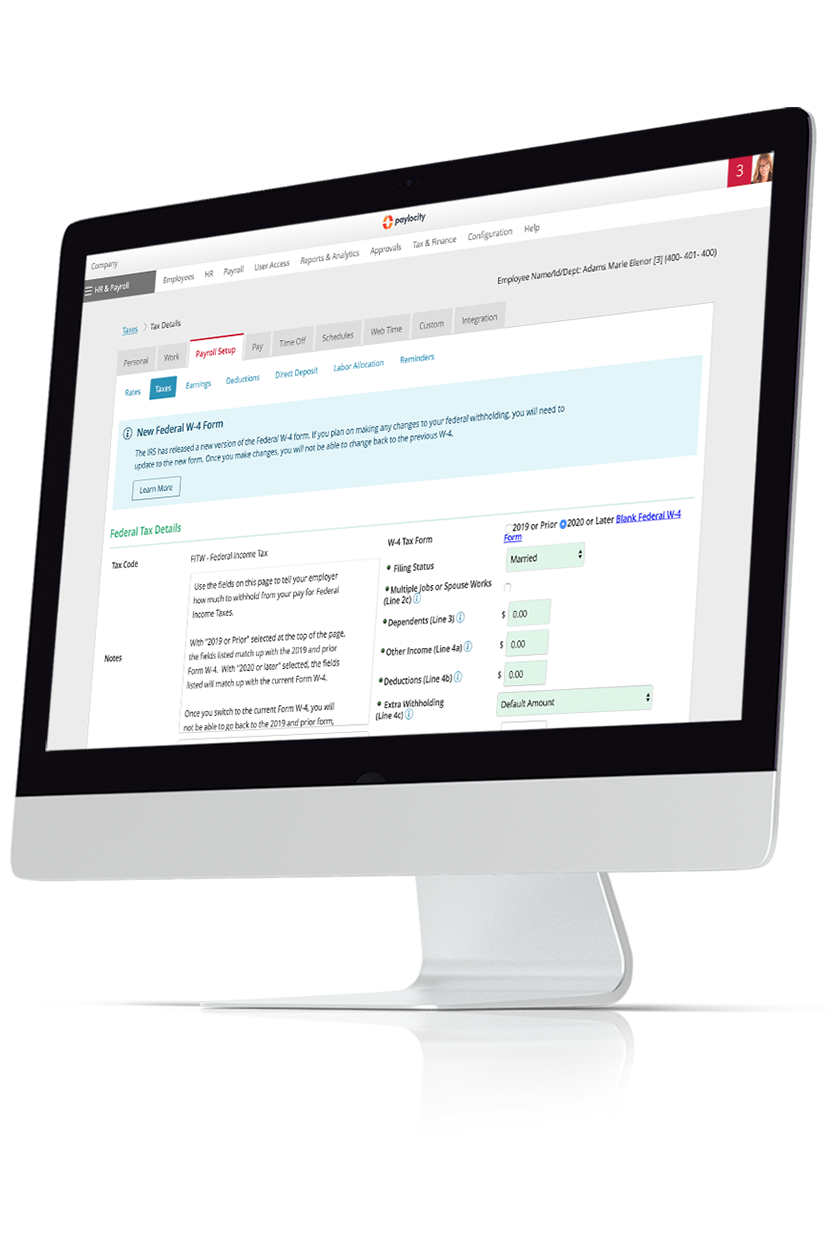Rhode Island Wage and Payroll Tax Facts
February 02, 2024
Having to comply with unique state taxes and wage laws can make processing payroll doubly daunting. Here’s everything you need to know about these rates and laws for the state of Rhode Island.
Select a state or federal tax guide

Rhode Island imposes a significantly higher minimum wage rate than the one required by the federal government in the Fair Labor Standards Act (FLSA). The state further specifies minimum wage rates for full-time students and minors aged 14 or 15 who work less than two hours a week. In either instance, the required rate is still higher than the FLSA required rate.
When it comes to processing payroll, Rhode Island-based organizations must handle the following taxes in addition to those required by the federal government:
- Personal Income (a.k.a. State Income Tax)
- State Unemployment Insurance (SUI)
- Temporary Disability Insurance (TDI)
The below information was last updated January 31, 2024. It is not intended as legal or tax advice.
Rhode Island Minimum Wage Rates
|
Wage Type |
Rhode Island Rates |
Federal Rates |
|
Minimum Wage |
$14.00* |
$7.25 |
|
Tipped Minimum Wage |
$3.89 |
$2.13 |
|
Actual Tip Credit |
$10.11 |
$5.12 |
*Full-time students working for nonprofits or religious, educational, community service, or library organizations must receive 90% of this rate. Minors aged 14 and 15 must earn 75% of this rate for a work week of 24 hours or less.
Rhode Island State Income Tax (SIT) Rates
Rhode Island's SIT is progressive, meaning it adjusts based on the income level of the employee paying the tax.
| Income Tax Bracket [Over X] - [But not over Y] |
2024 Income Tax Rate |
| $0 - $77,450 | 3.75% of excess over $0 |
| $77,450 - $176,050 | $2,904.38 + 4.75% of excess over $77,450 |
| $176,050 or greater | $7,587.88 + 5.99% of excess over $176,050 |
|
Additional Rhode Island SIT Details |
|
|
Supplemental Withholding Computation |
5.99% |
|
Valid Filing Statuses |
|
|
Exemptions |
Number of allowances |
|
Form W-4 |
Form RI W-4 |
|
Reconciliation Frequency |
Annual |
Rhode Island State Unemployment Insurance (SUI) Rates
SUI provides unemployment benefits to eligible workers who are unemployed through no fault of their own (as determined by state law) and meet the state’s eligibility requirements.
|
Rhode Island SUI Tax Details |
|
|
Taxable Wage Base |
$29,200 per employee ($30,700 for employers with an experience rate of 9.49 or higher) |
|
Employee Subject to Tax |
No |
|
Rates for Experienced Employers |
1.10% – 9.70% |
|
Rates for New Employers |
1.00%* |
|
Effective Period |
Calendar Year |
|
Voluntary Contributions Allowed |
Yes; 30 days after receipt of experience rate notice, or 120 days after the start of the calendar year for which rates are computed, whichever is earlier. |
*This includes the base rate (0.79%) and the Job Development Fund Assessment rate (0.21%).
Rhode Island Temporary Disability Insurance (TDI) Rates
Rhode Island's TDI benefits are funded by employees through mandatory payroll deductions from each paycheck.
|
Rhode Island TDI Tax Details |
|
| Maximum Taxable Earnings | $87,000 |
| Employee Deduction Rate | 1.2% |
| Maximum Employee Deduction Amount | $1,044 |
| Employer Contribution | None |
| Wage Replacement | 4.62% of the highest wages the employee earned in their base period* |
| Maximum Wage Replacement Rate | $1,043 a week |
*The first four of the last five completed calendar quarters before the claim was filed.
Miscellaneous Rhode Island Tax Information
Reciprocal Agreement(s)
Reciprocal agreements are when workers who live and work in different states are only required to pay taxes to the state where they live. Rhode Island currently has no reciprocal agreements with any other state.
This doesn’t mean, however, that interstate workers living in Rhode Island pay double. It’s federally illegal for two states to tax the same income. In most cases, the employee’s work state will credit or refund them at tax time based on the taxes they owe their home state. If the tax rates differ, the employee must cover the difference.
Paid Sick Leave (PSL) Taxes
The state of Rhode Island doesn’t require employers to collect PSL taxes, but it does have a Paid Sick and Safe Leave (PSSL) program providing such leave to eligible employees:
|
Rhode Island PSSL Details |
|
| Covered Employees | All except those not considered employees under the state's minimum wage act and independent contractors, subcontractors, federal work-study participants, or licensed nurses employed by a healthcare facility on a per diem basis. |
| Covered Employers | Those with 18 or more employees (those with 17 or fewer must provide at least unpaid sick leave) |
| Accrual Method(s) | 1 hour per 35 hours worked |
| Annual Accrual Maximum | 40 hours |
| Annual Use Maximum* | 40 hours |
| Probationary Period | 90 days (optional) |
| Frontloading Allowed | Yes |
| FAQs | Paid Sick and Safe Leave FAQs |
*Employees may carry over unused sick leave from one calendar year to the next but can't use or accrue more than 40 hours in a single calendar year.
Paid Family and Medical Leave (PFML) Taxes
Rhode Island's TDI program also functions as a Temporary Caregiver Insurance (TCI) program that gives employees the same benefits but to instead care for a seriously ill relative or bond with a new child. The state's TDI and TCI benefits are funded by the same mandatory deductions.
Rhode Island Employer Registration
The agencies below can help with your state-based employer registration, including best practices, account numbers, and unemployment information. Contact the Division of Taxation for withholding tax topics and the Department of Labor & Training for unemployment tax topics.
|
Registration Details |
Division of Taxation |
Department of Labor & Training |
|
Phone |
(401) 574-8829 | (402) 462-8760 |
|
Online Registration |
Combined Online Registration Process | |
|
Registration Form |
Business Application and Registration Form | |
|
Registration Instructions |
Online and paper registration options are available. Account numbers will be issued during the online process or in 2-4 weeks via mail. Separate account numbers for each tax type will be issued under the combined registration. |
|
|
Employer Self-Service Login |
Tax Portal Login Page | Employer Wage Tax Filing Login Page |
Additional Rhode Island Payroll Tax Resources
- Division of Taxation Withholding Tax Forms
- Department of Labor & Training Employer Handbook
- Department of Labor & Training Employer Tax Unit
This information is provided as a courtesy and may be updated at any time. It is not intended as legal or tax guidance. If you have questions or concerns, we encourage you to seek the advice of a qualified CPA, tax attorney, or advisor.

Get Taxes Done Right, Without the Stress
We know there's a lot that goes into preparing and filing payroll tax forms. Save time and get support from our expert team. As a Registered Reporting Agent with the IRS, we can help prepare and file all the necessary forms you need to remain compliant - even in the face of changing legislation. Learn more here.